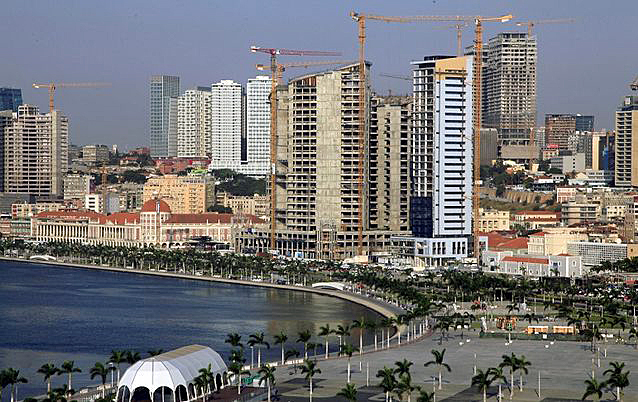PBS: Escaping Eritrea … [Read More...] about ካብ ውሽጢ ቤት ማእሰርታት ኤርትራ
Resentment builds among Angola’s poor
BY JOE BROCK, MAY 21 2015, Business Day (South Africa)

A HALVING of oil prices last year has increased hardship in Angola, one of the world’s most unequal countries, and stirred resentment towards President Eduardo dos Santos, the leader of Africa’s second-largest crude exporter for the past 36 years.
Angola’s government, which relies on oil sales for 95% of foreign-exchange revenue, slashed a third off its budget after a glut in global production caused a halving of oil prices last year.
Mr dos Santos’s government ended petrol subsidies last month to release the burden on the Treasury, a move supported by economists but resented by the poor, who felt the effects of a 30% rise in fuel prices. The central bank also restricted dollar sales as foreign-exchange supplies dried up, prompting a sharp fall in the kwanza, ramping up costs in a country that relies on imports for 80% of consumer goods. The kwanza is trading at 170/$ on the street, against 109/$ officially.
“The government treats us like dogs,” says Claude Ambrosio, swatting flies swarming around the dried fish she sells at a rundown market in Vianna, one of Luanda’s poorest suburbs.
“The price of everything went up but we get no help. There are no schools, no hospitals and you can see how we live,” she says, pointing to crumbling shacks and piles of rotting rubbish.
Annual growth in Africa’s third-largest economy has averaged about 10% as Angola rebuilt after a 27-year civil war ended in 2002 but the International Monetary Fund predicts growth of just 4.5% this year and 3.9% next.
Painful memories of the war and the best-funded security forces in Africa have stemmed any major civil unrest in Angola over the past decade, although more recently there have been signs of public antigovernment sentiment. In the central Huambo province, an opposition stronghold, police and soldiers fought with an anti-authority Christian sect last month.
A series of protests in the capital, Luanda, were cancelled last month after warnings of a police crackdown, human rights activists told Reuters.
Mr dos Santos’s opponents say he uses the powerful military, which takes the biggest slice of the budget, to maintain power. They also accuse him of using oil funds to enrich friends and family. His billionaire investor daughter, Isabel, is Africa’s wealthiest woman and his son, Jose, was made head of a $5bn sovereign wealth fund in 2013. Mr dos Santos denies accusations of nepotism and says his government has done much to stem corruption.
Those who have benefited from the country’s $50bn a year in oil sales are unlikely to support any dissent. “We’ve actually had more customers since the kwanza crashed. They can’t get dollars so they buy luxuries,” says Louis Mendes, who runs a jewellery shop in Bela’s Shopping, a mall named for its owner, Isabel dos Santos. “There is an incredible disparity between super rich and super poor. No middle ground.”
Angola provides one of the starkest examples of inequality in Africa: the Gini coefficient, a World Bank measure of inequality, puts Angola at 169th out of 175 countries. Most Angolans in Luanda live on less than $2 a day but foreign oil workers and the Angolan elite pay more for a hotel room, dinner out or a bottle of milk than they would in Paris, Singapore or New York.
